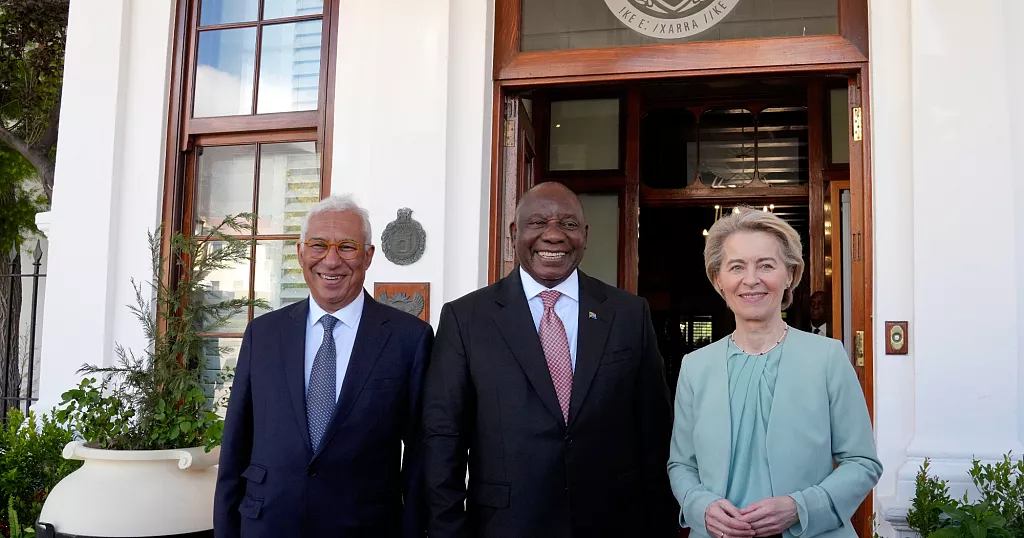The European Union has committed €4.7 billion ($5.1 billion) to South Africa, aiming to enhance the country’s renewable energy transition and vaccine manufacturing.
This investment, announced during the first EU-South Africa bilateral summit in seven years, reflects a renewed focus on economic and political collaboration.
A Shared Journey of Reconciliation
At the summit, European Commission President Ursula von der Leyen underscored the similarities between South Africa and the EU, both of which overcame historical conflicts through reconciliation.
“South Africa remains an emblem of hope for the world,” von der Leyen stated. “Today, we are together announcing an investment package to mobilize €4.7 billion in South Africa.”
President Cyril Ramaphosa reinforced the importance of global partnerships in upholding democracy and international law.
“This is the time to work together in defense of what we believe in—democracy, the rule of law, including the respect for international law and international humanitarian law,” Ramaphosa said.
As South Africa’s largest trading partner in sub-Saharan Africa, the EU seeks to strengthen economic cooperation. Von der Leyen stressed the importance of reliable partnerships and resilient supply chains.
“We want to strengthen and diversify our supply chains, but we want to do it in cooperation with you,” she said.
A significant portion of the investment is allocated to South Africa’s Just Energy Transition Partnership (JETP), a multilateral effort to reduce carbon emissions.
The EU’s commitment comes as the U.S. pulls back from a similar agreement.
“We know that others are withdrawing, so we want to be very clear with our support,” von der Leyen affirmed. “We are doubling down, and we are here to stay.”
Amid shifting geopolitical dynamics, the EU reaffirmed its support for South Africa’s leadership in the G20. Ramaphosa aims to use the country’s presidency to push for debt relief and climate financing for developing nations, priorities that have been sidelined by the U.S.
Relations between South Africa and the U.S. have become increasingly strained. Tensions escalated following South Africa’s legal challenge at the UN’s top court, accusing Israel—a key U.S. ally—of genocide in Gaza. In response, Washington imposed sanctions and cut financial aid, citing human rights concerns and alleged ties to groups such as Hamas and Iran.
Adding to the rift, U.S. Secretary of State Marco Rubio has avoided key G20 meetings hosted by South Africa and signaled that Washington will provide limited support for international cooperation through the bloc.
Trade Disputes Cast a Shadow Over Diplomacy
While the EU-South Africa summit marked a deepening of economic collaboration, transatlantic tensions were also at play. U.S. President Donald Trump recently announced plans to impose a 200% tariff on European wine, Champagne, and spirits in retaliation against EU proposals to tax American whiskey.
Von der Leyen responded with a firm stance.
“We will defend our interests. We’ve said it and we’ve shown it, but at the same time, I also want to emphasize that we are open for negotiations.”
Despite global uncertainties, the summit underscored a growing EU-South Africa partnership focused on trade, energy, and governance.

Leave a Reply